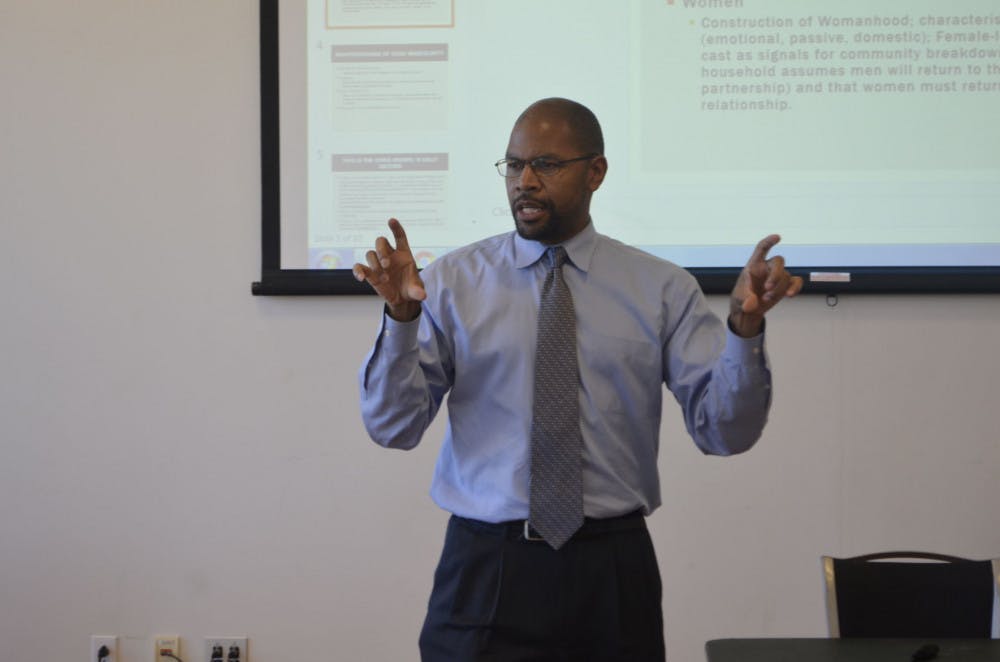As Sexual Assault Awareness Month continues, Safety Net hosted a panel Monday in the University Center to discuss the harmful effects of masculinity, especially in black culture.
Safety Net, a student organization formed to help students who experienced sexual assault, hosted Detox Masculinity, a panel of specialists to discuss how they feel about the stereotypes of masculinity and how to change them.
The discussion mainly focused on its harm within black men, gay men and women. The organization hoped to break male stereotypes by engaging with students and explaining the toxicity of society’s views on masculinity and why the culture needs to change.
Terrance Tucker and Cory Reed, professors at the University of Memphis, led the panel, and they explained how masculinity is a construct to either bring white men up or tear down black men, gay men and women.
Reed, a philosophy doctoral student at the U of M, focused on debunking the idea of masculinity and how common toxic masculinity is.
“I make the argument that there are moments, maybe not all the time, that toxic masculinity is like being a fish in water for certain men,” Reed said. “We are so ingrained into it. We have women who have no war with it. We’ve got non-gender conforming people who’ve got no problem with it. These are things men are supposed to preform, these are things women are supposed to preform and we just function as society with those assumptions.”
Tucker, an English professor at the U of M, focused on the way toxic masculinity is integrated through culture.
“I titled (my slideshow) ‘Are you man enough?’ because I was raised in a church, and one of the things the preachers used to always say was that men need to be men, which was a trigger for all these other ideas that no one really knew what they meant,” Tucker said. “It meant a very narrow concept of masculinity.”
Courtney Harrough, founder and president of Safety Net, said the panel intended to show the audience masculinity has a toxic effect, and there are other ways to go about being masculine.
“We would like to open up a discussion between specialists who study gender and gender roles with the students on campus,” Harrough said. “We want to open up on how we can take masculinity and how its impact in society has been toxic, how we can detoxify it but still honor how important masculinity and those traits can be within both men and women and non-binary students.”
Harrough said Detox Masculinity is one of the many events they will be hosting, and the panel is important for a lot of people in the organization.
“Detox Masculinity, I believe, is an event that is going to help open up conversations to take a deeper look at how we can actually take masculinity and pick it apart for the social construct that it is,” Harrough said. “We can look at it and see how culturally, historically and systemically, it is harmful to everyone in society, and how we can take apart the bad parts about it and still highlight the good portions of it that a lot of people are influenced by and that people actually appreciate.”
The discussion ended with Reed and Tucker agreeing that the concept of masculinity is toxic for culture and allows people who are not white men to feel less than powerful, and masculinity expands on all people, not just men.
Terrance Tucker, an English professor, discussed the influence of toxic masculinity in the media. He participated in the event "Detox Masculinity," which Safety Net hosted.






